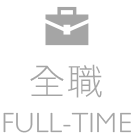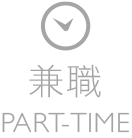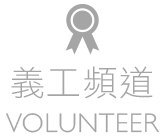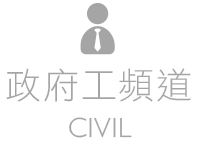
職場中常常有許多似是而非、看似有禮實則無禮的英語用法,雖然外國人未必聽不懂,但可能會皺皺眉頭、偷偷扣了幾分。改掉這些NG說法,彼此互動一定能更順利。
情境1 職場社交
1. 「若你有空,我可以帶你四處逛逛。」
X If you are free, I can bring you to see other places.
○ If you have some free time, I would be happy to show you around.
解析 bring是「攜帶物品」的意思,「帶人走走」應該用take這個動詞;更道地的口語說法,則是“show... around”。
2. 「請問您何時會回覆?還是我主動跟您聯絡?」
X When will you tell me the result? Or should I call you first?
○ When should I expect to hear from you? Or should I contact you?
解析 “tell me the result”聽起來有失禮貌,“expect to hear from you”則有「靜候佳音」的意思。而直接說“should I contact you”,表示對方可以用電話、email等各種方式聯繫你。
3. 「你吃過午餐了嗎?」
X Were you out to lunch?
○ Did you eat yet?
解析“out to lunch”這個片語意思是「瘋狂、心不在焉」;拿來問人,不小心就變成「你瘋了嗎?」
4. 「我們經理下班了。」
X Our manager is out of work.
○ Our manager has got off work.
解析 下班的正式說法是“get off work / duty”,口語一點則直說“be off”。不少人都會說成“out of work”,殊不知那是「失業」的意思,千萬別用錯。
5. 「我認為你是很優秀的程式設計師。」
X You are a great programmer, I think.
○ You are a great programmer.
解析 稱讚別人時,原本想強調「我真的這麼認為」,但是句尾加上“I think”,對方聽起來會像是「你很優秀,起碼我這樣認為,但其他人是不是這樣想,我就沒把握了。」因此,說“I think you are a great programmer.”會更好,或直接省略“I think”,聽起來語氣更肯定。
6. 正好在忙時.....
X I don't have time.(我沒有時間。)
○ I'm afraid I'm in the middle of something.(我正好有別的事情要做。)
解析 儘管“I don't have time.”可能是事實,但聽在對方耳裡,更像是不夠重視而拿來搪塞的藉口;不如明說手邊有重要事情得處理,來得更得體。
情境2 會議場合
1. 「我想行銷策略部份都討論到了。」
X I think I've finished discussing all of the marketing strategy part.
○ I think that covers everything I have to say about our marketing strategies.
解析 “finish discussing”的意思是「完成討論」,意味討論結束了;“cover”才是表示「涵蓋、包含」。
2. 「我們先確認協商順序,你認為如何?」
X Let's check the order of the negotiation first. What do you say?
○ Let's first agree on a procedure for the negotiation. How does that sound?
解析 如果要強調議題的步驟,精準的用字是“procedure”。而徵詢他人意見時,老外通常會說“How does that sound?”。
3. 「盧法斯先生今天休假,那由誰主持會議呢?」
X Mr. Rufus is not working today. Who will host the meeting?
○ Mr. Rufus is off today. So who will take the chair?
解析 可別以為“who will take the chair?”是在問「誰要搬椅子?」,老外在會議場合都是說“take the chair”來表達「擔任主席、主持會議」的意思。
4. 「不好意思,我可以插個話嗎?」
X Sorry, can I cut into your talk?
○ Excuse me, may I come in here?
解析 別把“may I come in here?”誤會成「我可以進來嗎?」,它其實是「可以打個岔嗎?」的常見說法。“Can I cut into your talk?”則是中式英文,應避免這樣說。
5. 「你的意思為何?」
X What is your meaning?
○ What do you mean?
解析 “What is your meaning?”意思是「你的人生有何意義?」,不但不符合原本要表達的意思,還變成質疑對方有沒有存在的必要,相當失禮。
情境3 與客戶/主管溝通
1. 「抱歉,我沒出席早上的會議,因為我睡過頭了。」
X Sorry for not attending the meeting this morning; I slept over.
○ Sorry for not attending the meeting this morning; I overslept.
解析 “sleep over”的意思是「到別人家過夜」,“oversleep”才是「睡過頭」的意思,雖然只有一線之差,說錯就糗了!
2. 「你有什麼疑問嗎?」
X What's your problem?
○ What's your question?
解析 想要問別人有沒有問題、疑問,應該要說“What's your question?”如果說“What's your problem?”就變成「你有什麼毛病?」一旦說錯,誤會可不小。
3. 當老闆交辦任務時......
X I will try.(我會盡力嘗試。)
○ I will do it.(我會辦到。)
解析 “I will try.”聽在主管耳中是輸家的語言,因為「盡力」是在為自己留後路;贏家則會堅定的說“I will do it.”。
4.當客戶提出的要求行不通時......
X That doesn't work.(這樣行不通。)
○ There are multiple ways we can approach that.(我們會多管齊下,試著辦到。)
解析 面對客戶的需要,前者的說法聽起來無禮而且不負責任,後者則表現出嘗試解決問題的態度。
5. (送客戶離開時)「請不要忘記您的私人物品」
X Don't forget to carry your thing.
○ Don't forget (about) your personal belongings.
解析 “your thing”對老外而言,通常指的可是性器官,小心別鬧笑話了!
情境4 email往來
1. 「我想再次確認下週的行程。」
X I would like to double comfirm the schedule for next week.
○ I would like to comfirm again the schedule for next week.
解析 不少人習慣說“double confirm”,美國人聽了,或許大概懂意思,但這是不正確的用法。“double”沒有「再一次」的意思,而是「雙重、兩倍」。想要說「再次確認」可直接說“confirm again”或是“reconfirm”。另外一個普遍的說法是“double check”,有「再確認、小心謹慎」的意思。
2. 在信中感謝對方
X Thank you in advance for any help you can provide.(先謝謝你的幫忙。)
○ I will be grateful for any help you can provide.(我很感謝如果你可以提供協助。)
解析 中文說「我先謝謝你了。」聽起來是禮貌的表達,但很多外籍商業人士都認為這看起來「很冒昧」,似乎假定別人非要幫忙不可,或意謂現在先謝過、事情完成了就不必再謝。因此,不妨去掉“in advance”,換個方式表達誠意。
3. email開頭
△ Dear John,
○ Hi, John,
解析 BBC和《富比士》雜誌(Forbes)指出,商業郵件中打招呼,用“Hi”或“Hello”開頭,會比“Dear”帶來的接受度更高,創造輕鬆、友善的氣氛,也更容易得到期待的回應。而“Dear John”在英文中是「分手信」的意思,小心嚇到對方!
4. email結尾
△ Regards / Sincerely / Best wishes
○ Looking forward to your reply / feedback.(靜候佳音)
解析 “Regards”或“Sincerely”放email結尾雖然沒錯,卻過於形式化,也不見得適用每種情境。例如告知對方砍預算,結尾說“Best wishes”就顯得矯情。“Looking forward to...”則有重申重點的效果,如果是邀請對方與會,就可說“Looking forward to seeing you at the meeting.”。
Source








